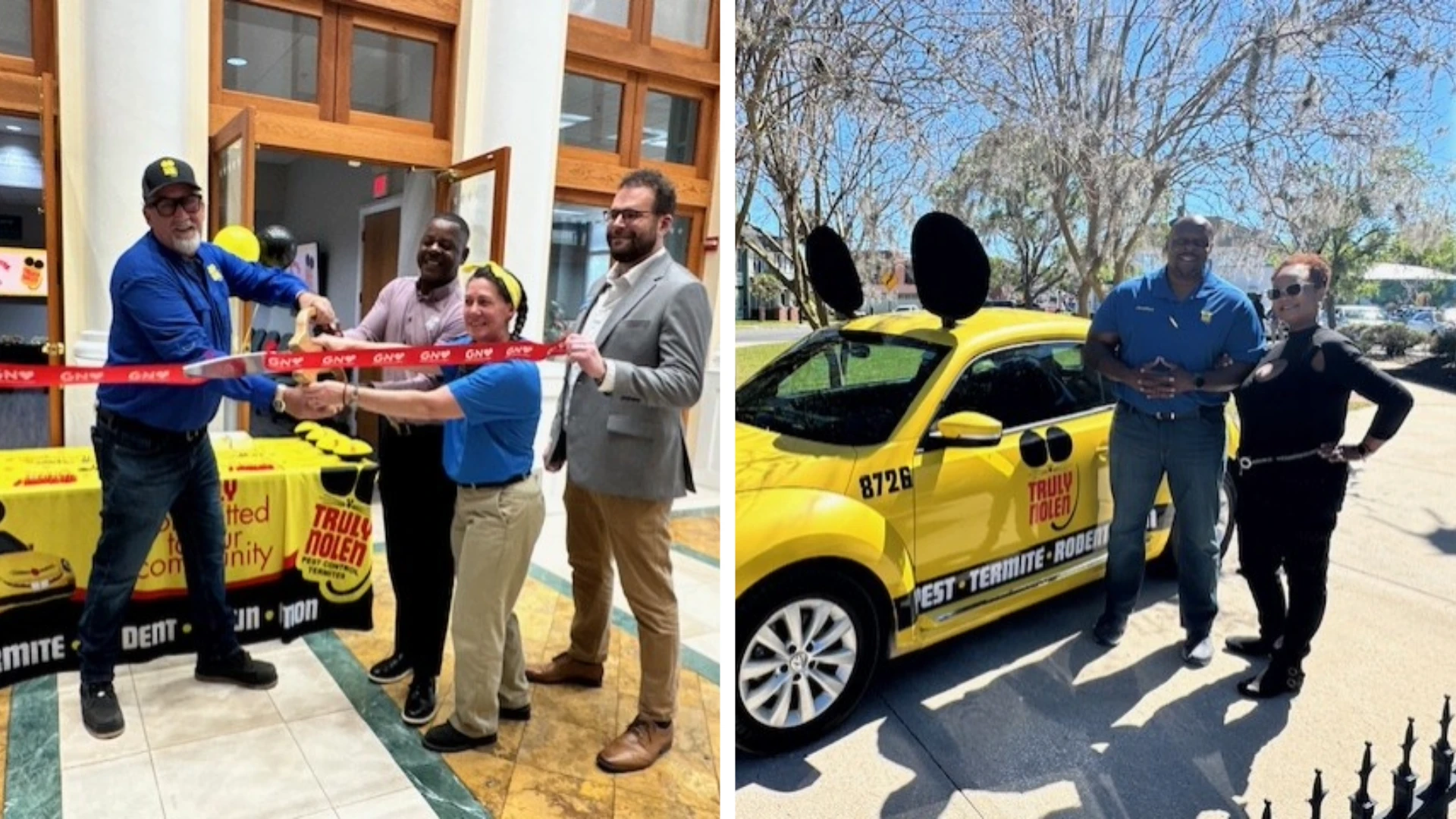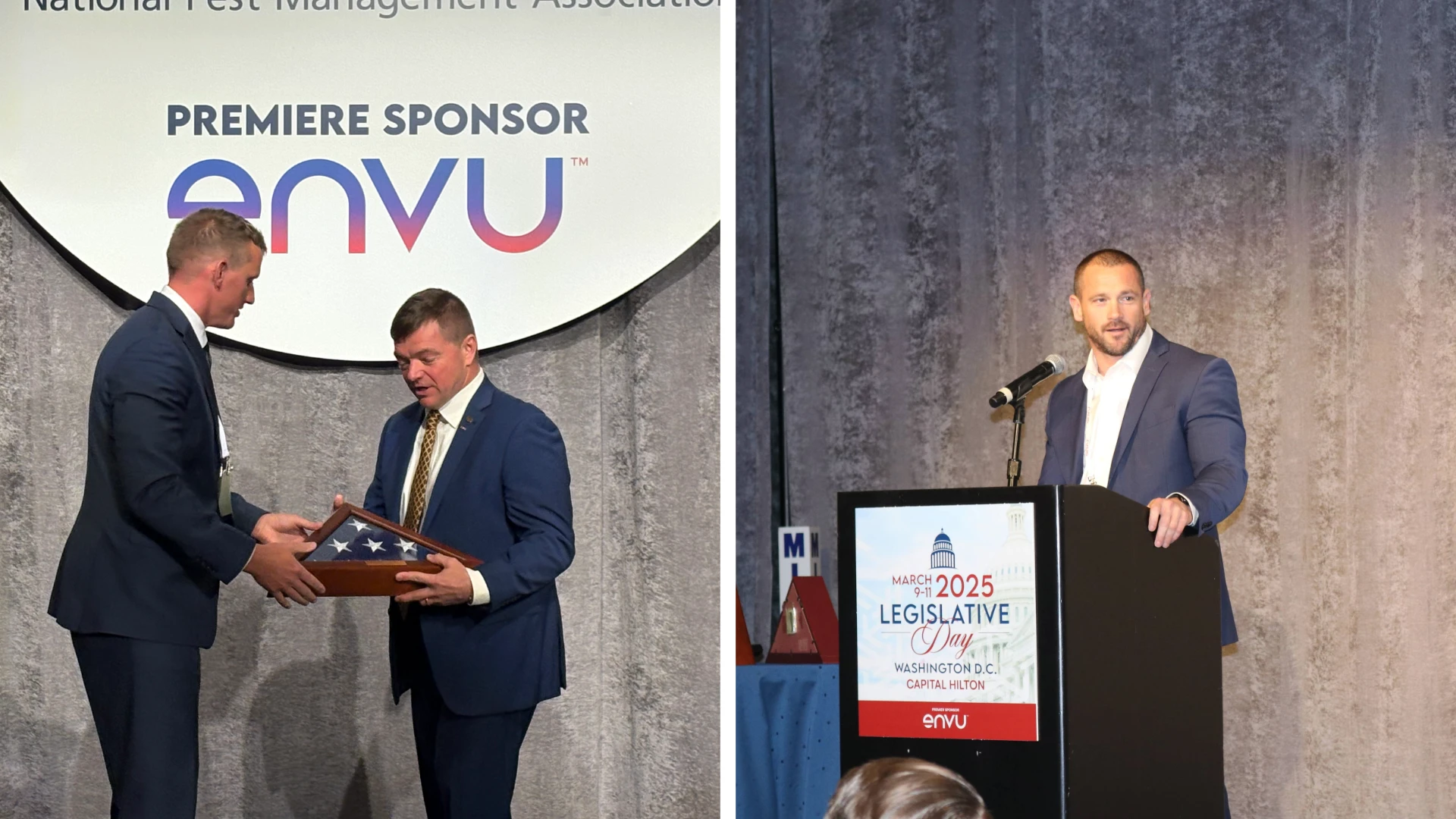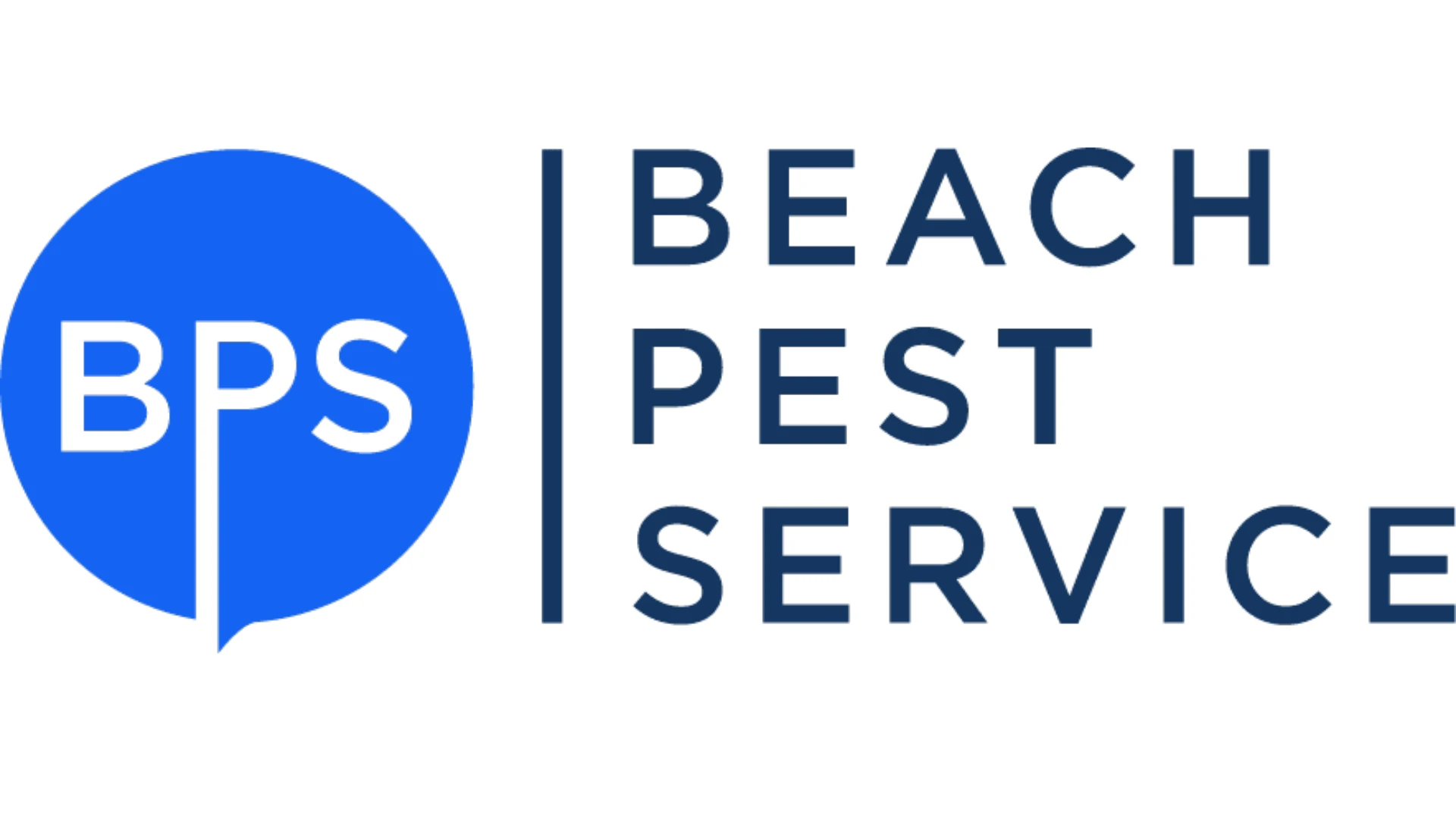In its 50-year history, Copesan Services has prided itself on being structured in such a way that it can accommodate Partner companies with aggressive growth strategies. But when J.C. Ehrlich/Rentokil announced in July 2007 it had acquired fellow Copesan Partner Presto-X-Company, it was a decision that caused those within Copesan to take a hard look at its Partners and its purpose, which is to be “an alliance of regional pest management companies united to service regional and national commercial clients.”
Soon after this high-profile sale, Copesan President Deni Naumann told PCT that while there was some uneasiness among Copesan Partners, most of those fears were allayed when Victor Hammel, Ehrlich president and CEO of Rentokil Pest Control North America, and Presto-X-Company co-owners Ward Combs II, president, and Jerry Keown, vice president, explained that once the companies merged they would operate as separate entities with separate presidents, management teams and service areas (see PCT, October 2007).
However, as Copesan board members and Partners further evaluated the situation in the subsequent months, they decided it was necessary to make a difficult decision in order to preserve Copesan’s future and be true to its mission. The addition of Presto-X-Company grew J.C. Ehrlich/Rentokil’s revenues by 20 percent and — perhaps of greater significance — greatly expanded the company’s geographic footprint (Presto-X has a 17-state service territory in the Midwest), moving J.C. Ehrlich/Rentokil further on its path to becoming a national player, a goal that had been previously stated by company officials. In July 2007, when Rentokil/Ehrlich announced it had acquired Presto-X-Company, Rentokil Initial Chief Executive Doug Flynn said, “Our business in North America continues to strengthen its position in the world’s largest pest control market.
“(The acquisition of Presto-X) is fully in line with our strategy in North America of acquiring quality regional companies which expand our footprint,” he said.
Additionally, on Jan. 24, 2006, when Ehrlich announced it had been sold to Rentokil, Ehrlich said in a release that “the newly expanded organization will be a platform for Rentokil Initial to develop its position in the North American pest control market.”
Thus, it did not come as a surprise to many in the industry when, in mid-January, Copesan announced it had initiated the termination of its association with stockholder Partners J.C. Ehrlich/Rentokil and Presto-X.
“After the purchase of J.C. Ehrlich by Rentokil in 2006, the combined operation of J.C. Ehrlich/Rentokil remained a beneficial fit for both our organizations. However, with the recent acquisition of Presto-X, their new, combined geographic footprint, along with their stated goal to be a national player in the United States, has put Copesan into a competitive situation that we could no longer continue to overlook,” said Alfie Treleven, president of Sprague Pest Solutions, Tacoma, Wash., and chairman of Copesan’s Board of Directors. “After many years together as joined forces, the time has come for our organizations to part ways and pursue our individual company goals.”
In a press release, Ehrlich/Rentokil’s Victor Hammel said that neither he nor Presto-X’s Combs were surprised by the decision, but they were “taken aback by the timing.”
With the acquisition of J.C. Ehrlich and Presto-X, Rentokil had planned to grow in partnership with the Copesan network.
A DIFFICULT DECISION. While the disengagement of the J.C. Ehrlich/Rentokil and Presto-X organizations may be in the best long-term interest of Copesan, that’s not to say it was an easy decision for all the parties involved, both from a personal and professional standpoint. Treleven told PCT that leaders of J.C. Ehrlich (Bobby and Victor Hammel) — and Presto-X leaders Ward Combs II and his wife, Judy; Jerry and his wife, Jerry Anne Keown — have been close friends and their contributions have been instrumental to the success of Copesan and his company, Sprague Pest Solutions.
“There was a buzzword in the ‘90s called ‘co-opetition,’” Treleven said. “You compete sometimes, you work together sometimes. At some point down life’s road it was just going to be competing. Thinking and acting strategically, the board deliberated for a long time on this and looked at many different ways for this to work. Eventually it just came down to the realization that some time in the future, whether it was today or 18 months from today or longer, it just strategically wasn’t going to be a good fit.”
Hammel expressed similar sentiments. “Presto-X and J.C. Ehrlich both gained a lot from Copesan in our 45-year relationship,” he said. “Many of the Copesan members are personal friends, and we only regret that we are now on a path to become competitors.”
WHAT’S NEXT? At press time, leadership from the Copesan, J.C. Ehrlich/Rentokil and Presto-X organizations were scheduled to meet and discuss the transition of the business and its associated timelines. “Our primary focus at this point is on the methodical transition of the Copesan accounts to their new service Partner and on maintaining uninterrupted, quality service at every client location,” said Copesan’s Naumann.
Mike Campbell, Copesan vice president of operations, said Copesan already has a transition plan in progress for the accounts that J.C. Ehrlich/Rentokil/Presto-X are servicing.
While Copesan’s Naumann did not specify which companies will take over the service of Copesan accounts serviced by J.C. Ehrlich and Presto-X, she told PCT that many of the Copesan Partners that are established as secondary Partners, providing redundant service capabilities in those geographies, are looking forward to the opportunities that are available to them as primary service providers.
“For those that will be receiving the business, it helps them fill their routes, it creates service revenue for them. Their sales teams are very excited to be engaged in the process,” she said. “If you go back and look at how the business model works, for the Partner that sells the business, they have the first right of refusal to service any location in their service territory. Those Partners that are moving into that primary territory are very excited. It’s a wonderful opportunity for them to grow within the organization.”
Naumann added that it’s important to note this is not the first time Copesan has been through this type of situation with a significant Partner company. “In all previous cases we’ve pulled through with flying colors,” she said. “In fact, after each one, Copesan has become stronger. This case should be no different.”
Hammel and Combs said they see a silver lining in gaining their independence because it “greatly expands our opportunities to work with a wider range of pest management companies,” Hammel said. “We welcome quality companies who wish to join Presto-X, J.C. Ehrlich and our family of companies as either service partners or for possible acquisition.”
Combs added that both J.C. Ehrlich and Presto-X will honor all service commitments in keeping with the spirit of their Copesan partnership. “The customer has been — and always will be — our top priority.”
The authors are managing editor and publisher of PCT magazine.
More Changes AheadThe question on many people’s minds is how will the new Copesan look once the J.C. Ehrlich and Presto-X territories have been divvied up? At press time, no announcement had been made as to which Copesan Partners will take over these areas.
Copesan President Deni Naumann said she believes Copesan is well positioned for these changes. Under the current Copesan business model, each service territory has primary and secondary Copesan Partners from which Copesan clients can choose. This reduces the potential for service disruptions and offers alternatives should a client require a different pest management approach in a specific market.
Copesan recently unveiled aggressive plans to recruit new Partners in specific geographic regions to complement its 60-plus members and it recently added 12 new Partners to its ranks. “We have a transition plan that is in progress for our accounts that (J.C. Ehrlich/Rentokil, Presto-X) are servicing to be placed in the hands of very capable Partners,” Naumann said. “We’ve been having lots of dialogue and activity throughout our organization. Our focus is to continue to deliver the same high-quality service to our clients that they have come to expect from Copesan.”
The existing Copesan business model also will allow the organization to continue to grow these territories via new sales, Naumann said. Under this model, new business is developed through coordinated efforts between Partner-employed sales teams and Copesan’s corporate-employed sales management support team. For example, the Copesan regional sales managers and vice president of sales will work with the Partners’ sales management teams to pursue, on behalf of Copesan, national business that overlaps various Partner service territories. Upon such a sale, the service locations are assigned based on established procedures.
The Partner that sells the national account service contract has the first right of refusal to service any locations in its service territory. The remaining locations are assigned to Partners based on established territories in the geographic areas.

Explore the February 2008 Issue
Check out more from this issue and find your next story to read.
Latest from Pest Control Technology
- Understanding Rodents and Bird Flu
- Green Pest Solutions Awards Safest Driver New 2025 Ford F150
- UF/IFAS Sheds Light on Tiny Invaders During Termite Awareness Week
- Registration Open for Lawn & Landscape Technology Conference
- Fleetio Launches Automotive Service Excellence Scholarship
- WorkWave Appoints John Phelan as CTO
- PMPs Use Capitol Hill Visits to Push for Preemption
- 20 Trapping Tips





